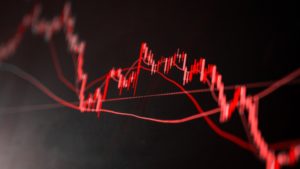
I have just returned from a 2-week summer holiday – a period which coincided with particularly volatile markets in the first week of August, which may have been unsettling for you.
Whenever periods of headline-grabbing market turbulence occur, as professional investors we are inundated with jargon-filled rationalisations from experts across the industry. From my holiday, I was also more acutely aware of how these events were reported in the mainstream media.
At the risk of disappearing down a rabbit-hole, the ease with which information can be disseminated (directly to our hands via mobile devices and delivered via a multitude of different apps in real time), combined with ever shorter-attention spans (due in part to the way we consume information), means events can be blown out of all proportion very quickly with very little accurate information.
In addition, the structure of today’s financial markets is unrecognisable today versus even 10 years ago let alone 20 or 30. So, comparisons with prior bouts of volatility must be taken with a huge pinch of salt. Today, market participants include all sorts of speculators and investors, many of whom are deploying strategies and techniques that didn’t exist in the recent past.
These participants can use huge amounts of leverage across different currencies (borrowing in one currency to fund speculation in assets denominated in other currencies) – so-called “carry trades”. Specialist “high-frequency” traders use complex algorithmic models to generate tiny profits thousands and millions of times a week. The rise of “passive” investing has accelerated over recent years. All of which means there are fewer active investors as a proportion of the whole who trade based on “fundamentals” (how well companies are operating in the real world) or valuation (how cheap a company’s share or bond is).
Moreover, financial markets are incredibly complex systems impacted by a multitude of external non-controllable factors: inflation dynamics, interest rate decisions by central banks, the weather, politics…. The list is long.
Due to all these factors, market turbulence, when it happens, results in more volatility than ever before. Subsequent to such events, a cottage industry of experts competes to sound cleverer than each other and rationalise the unrationalisable.
The truth is that no one really knows exactly why the days in the first week of August saw a spike in volatility only beaten twice in history (the Great Financial Crisis and Covid being the two others). Yes, the Bank of Japan inched up its interest rate. Yes, the US had seen surprisingly poor economic data. Yes, there were some disappointing earnings from the largest companies in the world. But no one knows why it was Japanese equities that reacted the worst to this, why UK mid-caps fell, why US equities have since recovered and Japanese equities have not….
At Hawksmoor, we recognise that we can never know why some things happen in markets. We also know that we have no edge in predicting short-term movements in the prices of financial assets within a complex system subject to the actions of a huge array of participants, none of whom pay any attention to fundamentals or valuation – two things we care deeply about.
Our best course of action is thus twofold:
- Stay disciplined and focus on the controllables. We can control the price we pay for investments in your portfolios, and we can also control how much work we put into researching investment opportunities.
- Accept that volatility is a part of investing, and that bouts of market turbulence may result in higher volatility than we have been used to historically. Accept that we can’t predict macroeconomic or political outcomes; and even more importantly, recognise that even if we could predict those variables accurately, that still doesn’t mean we can predict how financial assets will react.
Most importantly, we need to communicate all of this to you, our clients. We must lead you to expect that the nature of markets today means that episodes such as we just saw are more likely to recur in the future. We urge you also to bear in mind the motivation of those who report on these events in the moment: the rush to rationalise the unrationalisable, the need to sound clever in doing so as if knowledge of the past will help with the future (it doesn’t necessarily), over-use of jargon and the need to capture eyeballs with sensationalist headlines.
You employ an investment manager to stay calm and focus on what’s important in determining the medium- and long-term direction of asset prices. When asked why something happened in the days after an event (or during), the correct answer is nearly always “we don’t know”. Humility must be our starting point when investing our clients’ wealth. It is the foundation on which good through-the-cycle investment performance is built.
Ben Conway – Chief Investment Officer & Head of Fund Management

FPC24218
All charts and data sourced from FactSet
Hawksmoor Investment Management Limited is authorised and regulated by the Financial Conduct Authority (www.fca.org.uk) with its registered office at 2nd Floor Stratus House, Emperor Way, Exeter Business Park, Exeter, Devon EX1 3QS. This document does not constitute an offer or invitation to any person in respect of the securities or funds described, nor should its content be interpreted as investment or tax advice for which you should consult your independent financial adviser and or accountant. The information and opinions it contains have been compiled or arrived at from sources believed to be reliable at the time and are given in good faith, but no representation is made as to their accuracy, completeness or correctness. The editorial content is the personal opinion of Ben Conway, Head of Fund Management & Chief Investment Officer. Other opinions expressed in this document, whether in general or both on the performance of individual securities and in a wider economic context, represent the views of Hawksmoor at the time of preparation and may be subject to change. Past performance is not a guide to future performance. The value of an investment and any income from it can fall as well as rise as a result of market and currency fluctuations. You may not get back the amount you originally invested. Currency exchange rates may affect the value of investments.
